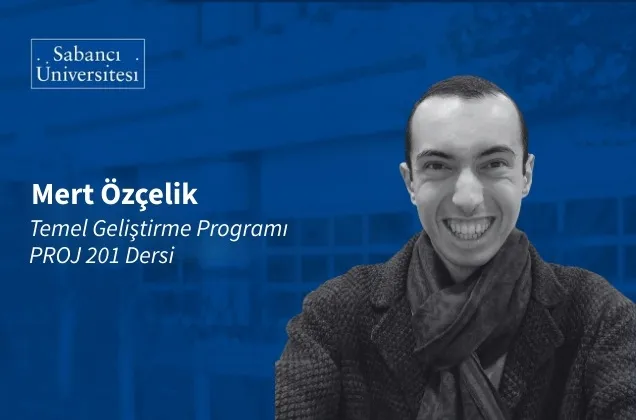11/11/2025
Regret Index: The Hidden Signal of Equities
We often believe there's a logical story behind our actions. But let's be honest: Those decisions aren't always filtered through a crystal-clear lens of logic. Behind many choices are intertwined psychological dynamics, rather than mathematical reasoning. Those interested in social psychology know well that sometimes factors we're not even aware of shape our choices. And when we discover these factors, the veil of mystery is lifted, a moment of enlightenment. The situation is no different in the financial world. Classical finance theory assumes that people are completely rational and will always choose the option that yields the highest benefit when making decisions.

In real life, however, things don't work that way. This is precisely where behavioral finance comes into play, offering models that take a closer look at people and are more psychologically realistic. For example, prospect theory, developed by Nobel laureates Daniel Kahneman and Amos Tversky, goes beyond classical utility theory to explain our decisions. This approach recognizes that the human mind doesn't have unlimited capacity, and that our perception operates within certain constraints. In other words, our minds don't function flawlessly like a calculator; they're prone to errors, emotional overactivity, and distraction. Factors like attention deficit, overconfidence, optimism, and poor memory influence our investment decisions more than we realize.
Factors like overconfidence and optimism influence our investment decisions more than we think. A study by Sabancı University Professor Dr. Yiğit Atılgan, Professor Dr. Özgür Demirtaş, Assoc. Prof. Dr. Doruk Günaydın, and Aynur Dilan Tosun, a doctoral student in finance, published in the International Review of Financial Analysis, examines "regret," one of the most familiar emotions in the investment world. Furthermore, it considers it not only as a psychological phenomenon but also as a significant variable in understanding equity returns.
If only: Regret in the Equity Market
We've all made sentences that begin with "If only..." The situation is no different in the investment world. But before delving into the findings of a scientific study, it's essential to clarify the concept. In psychology and neuroscience literature, regret is defined as the state in which someone, faced with a choice between two uncertain outcomes, becomes fixated not only on the outcome but also on the question, "What would have happened if I had chosen the other?" If the alternative you missed is more attractive than the outcome you're looking at, that's when those famous "if onlys" come into play. For investors, this is the slight ache of a missed opportunity.
The researchers measure investor regret from three different perspectives: looking at alternatives in the same sector, comparing them to similar-sized companies, and evaluating them on a "cheap-to-expensive" axis (the book-to-market ratio). Simply put, how much has your equity's return lagged behind its peers? The greater this difference, the greater the regret.
The researchers are testing the hypothesis: "Equities that have generated more regret in the past must be cheaper today to re-entice investors, which could translate to higher returns in the future." They use a considerable dataset: 41 countries, 21 developing and 20 developed, between January 1986 and December 2023. How far has your equity's return lagged behind its peers? The larger the difference, the greater the regret.
The results are striking: Equities that generate more regret—especially those traded in smaller companies and emerging markets—tend to deliver above-average returns in the future. Moreover, this effect persists across different measurement methods, but comparisons with similar-sized companies provide the strongest pricing signal.
More interestingly, even when other factors known to influence equity returns are taken into account—market risk, company size, past performance, volatility, profitability, and investment level—the regret effect persists. This means it's not just a reflection of other asset pricing anomalies; it's an independent force in its own right. And a bonus: This effect is even more pronounced in markets where investors have a shorter-term perspective and limited arbitrage opportunities.
In short, "what ifs" are not only a part of life but also of the equity market. Emotions generated by missed opportunities can provide powerful clues about which equities are likely to yield the most profit in the future. So, sometimes a strong investment signal comes not from numbers, but from human emotions. Sometimes a strong investment signal comes not from numbers, but from human emotions.
KEY FINDINGS
- Regret, unlike other known asset pricing anomalies, emerges as an independent variable affecting equity returns.
- Regret experienced in the more recent past appears to be a stronger signal in predicting returns.
- Equities that evoke greater feelings of regret in investors, particularly those owned by smaller companies and those traded in emerging markets, tend to deliver significantly higher returns in the future.
If you're curious about all the details of the research and how it's quantified, you can access the full study here:
Atilgan, Y., Demirtas, K. O., Gunaydin, A. D., & Tosun, A.
D. (2025). Regret in global equity markets. International
Review of Financial Analysis, 103, 104198.
Yiğit Atılgan:
https://sbs.sabanciuniv.edu/tr/yigit-atilgan
https://scholar.google.com/citations?
user=6OQlqSEAAAAJ&hl=tr&oi=ao
K. Özgür Demirtaş:
https://sbs.sabanciuniv.edu/tr/ozgur-demirtas
https://www.researchgate.net/profile/K-Ozgur-Demirtas
A. Doruk Günaydın:
https://sbs.sabanciuniv.edu/tr/doruk-gunaydin
https://scholar.google.com/citations?user=_mb-
PBsAAAAJ&hl=tr&oi=ao
Aynur Dilan Tosun
https://www.researchgate.net/profile/Aynur-Tosun
Edited by: Ceyda Sinağ




